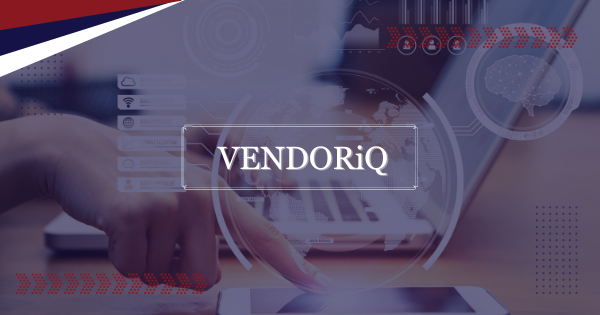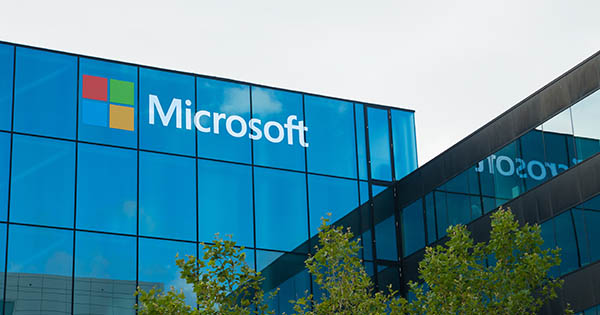Advisory by Author

Citizen Facing Digital Services in Local Government: More Than User Journeys – Webinar and Presentation Kit
Councils’ digital strategies often fail vulnerable citizens. By adopting empathic design and optimising existing tech, executives can improve equity and efficiency.

VENDORiQ: Microsoft’s New AI-Enabled PCs – Strong ARM Tactics or Shape of Things to Come?
Delve into the analysis of Microsoft’s latest AI-enabled PCs, uncovering the performance enhancements, compatibility hurdles, and crucial data privacy implications.

AI for Enterprises: Why Smaller, Open Source LLMs May Be Better
Explore the benefits of leveraging smaller, open-source LLMs for enhanced AI capabilities in enterprises.

Mega Table of Available Generative AI
Stay informed on the latest in generative AI with a comprehensive resource detailing open-source LLMs, context length, tokens, and licensing information.

Solving Information Hyperinflation: How AI is Driving New Approaches to Information Governance – Webinar And Presentation Kit
The deluge of data across organisations is creating ‘information hyperinflation’, posing unique challenges. We’ll explore how AI addresses tough information governance, privacy, and protection issues, based on insights from 380+ interviews with information managers.
Leveraging AI for Enhanced Compliance and Governance – Help Net Security – 11 April 2024
AI is both the cause of and the solution to information hyperinflation. Use smart AI to classify data before letting generative AI search it.

The Future of Search: Multiple AIs Working Together
Search is evolving from simple keyword matching that returns ranked results, to an experience that provides more relevant information and delivers information within the context of a conversational query.

How We’ll Work in the Year 2035 – Webinar And Presentation Kit
What will the Future of Work look like in 2035?

Content Cognition to the Rescue Whitepaper
In our era of digital revolution, the surge in information, termed ‘information hyperinflation’, poses unprecedented challenges.

Learning and Development for the Introduction of New Technology (Part 2)
Following ‘Learning and Development for the Introduction of New Technology’, IBRS looks into the necessity of incorporating learning and development programs into all user acceptance testing processes for new solutions.
GenAI and ‘Information Hyperinflation’: Australian Organisations Grapple with Data Security – Mi3 – 18 March 2024
‘Information hyperinflation’ is here. GenAI is creating a data explosion that traditional security and compliance measures simply cannot handle.

IBRS State of Identity Whitepaper
This paper sheds light on critical aspects of identity and access management such as justifying investments, controlling federated identities, and addressing certification fatigue.

Learning and Development for the Introduction of New Technology
Developing high-quality and effective learning and development (L&D) programs for the implementation of new solutions requires a considerable amount of time. IBRS looks into the challenges that affect L&D development.

Supercharge Your Digital Transformation with a Low-Code Centre of Excellence – Presentation Kit
Establishing a low-code culture requires strategic thinking, agile development, and collaboration across departments for scalability, security, and continuous improvement.

Holistic Low-Code Ecosystem Digital Fabric with AI
Enterprises increasingly turn to low-code platforms integrated with AI capabilities to address the growing demand for rapid software development and process automation. How can AI within low-code solutions enhance decision-making, scalability, and resource optimisation?
Microsoft’s Copilot Now Available to SMEs – ITNews – 16 January 2024
Microsoft’s Copilot AI is now open to all. The slow rollout wasn’t just about enterprise testing; it was about managing staggering operational costs.

Microsoft Azure Desktop Services – Getting the Best Bang for Your Buck
Learn how to trim down costs and optimise your Microsoft Azure Desktop Services implementation for virtual desktop infrastructure.

Complex Digital Govt Services Causing Users to ‘Disengage’ – NBR – 21 November 2023
“We must now address the root causes that go beyond connectivity. Rather than focusing on big innovations that require significant investment, it is better to focus on enriching existing services with empathetic delivery design principles and guide citizens through the service.” Dr Joseph Sweeney

The Future of Shared Services
Explore the future of shared services and the impact of SaaS in this insightful IBRS Special Report. Stay ahead of the game and ensure your organisation’s success in the digital era.

The Future of End-User Computing: The Biggest Change Since the Mouse is Upon Us
As the landscape of computing continuously evolves, from early innovations like the mouse to today’s touch-screen technology, the advent of natural language processing and generative AI promises to reshape human-computer interaction. What strategies can organisations employ to harness this potential and prepare for this monumental shift in the way we work with computers?

IBRSiQ – AI in Government
Dr. Joseph Sweeney provides enlightening insights in this IBRSiQ, as he delves into the utilisation of AI in government beyond ChatGPT.

Australia vs Fraud: Batting with Big Data for a Winning Game
Discover the potential benefits of using diverse data in fraud detection. This IBRS special report will show you how big, diverse data can help businesses prevent fraud and improve customer experience.
AI Bill Shock is Real. Here’s How Small Businesses Should Prepare – Smart Company – 15 September 2023
AI promises huge savings, but bill shock is inevitable. The biggest financial risk isn’t the AI itself, but uncontrolled low-code automation

Doing AI Intelligently – Webinar And Presentation Kit
Implementing AI intelligently requires a strategic approach that balances innovation with risk management. Here’s how to do AI intelligently.
